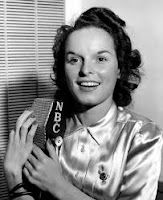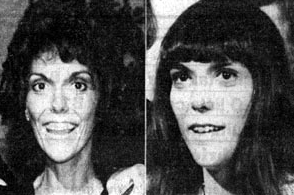➦In 1897...British patent No. 12,039 (1897) "Improvements in Transmitting Electrical impulses and Signals, and in Apparatus therefor", was granted to a 22-year-old Marconi.
As a boy he took a keen interest in physical and electrical science and studied the works of Maxwell, Hertz, Righi, Lodge and others. In 1895 he began laboratory experiments at his father’s country estate at Pontecchio where he succeeded in sending wireless signals over a distance of one and a half miles.
In 1896 Marconi took his apparatus to England where he was introduced to Mr. (later Sir) William Preece, Engineer-in-Chief of the Post Office, and later that year was granted the world’s first patent for a system of wireless telegraphy.
The apparatus that Marconi possessed at that time was similar to that of one in 1882 by A. E. Dolbear, of Tufts College, which used a spark coil generator and a carbon granular rectifier for reception. A plaque on the outside of BT Centre commemorates Marconi's first public transmission of wireless signals from that site. A series of demonstrations for the British government followed—by March 1897, Marconi had transmitted Morse code signals over a distance of about 6 kilometres (3.7 mi) across Salisbury Plain. On 13 May 1897, Marconi sent the world's first ever wireless communication over open sea.
➦In 1950...Karen Anne Carpenter born (Died - February 4, 1983 at age 32). She was a singer and drummer who was part of the duo the Carpenters alongside her brother Richard. She was praised for her contralto vocals, and her drumming abilities were viewed positively by other musicians and critics.
Carpenter was born in New Haven, Connecticut, and moved to Downey, California, in 1963 with her family. She began to study the drums in high school, and joined the Long Beach State choir after graduating. After several years of touring and recording, the Carpenters were signed to A&M Records in 1969, achieving commercial and critical success throughout the 1970s. Initially, Carpenter was the band's full-time drummer, but gradually took the role of frontwoman as drumming was reduced to a handful of live showcases or tracks on albums.
Carpenter had the eating disorder anorexia nervosa, which was little-known at the time, and was briefly married in the early 1980s. She died at age 32 from heart failure caused by complications related to her illness; her death led to increased visibility and awareness of eating disorders. Her work continues to attract praise, including being listed among Rolling Stone's 100 greatest singers of all time.
➦In 1974....Super WCFL 1000 AM Chicago Survey From March 2, 1974
➦In 1983…Sony and Philips introduced their jointly-developed compact disc system. Within a decade of the CD’s introduction, vinyl records had virtually disappeared from stores. The compact disc is an evolution of LaserDisc technology, where a focused laser beam is used that enables the high information density required for high-quality digital audio signals.
➦In 1984...From R&R March 2, 1984...
➦In 1999...Singer Dusty Springfield died from breast cancer at age 59. (Born 16 April 1939). Her biggest hits included '60s hits, 'I oOnly Want To Be With You", “Son of a Preacher Man” and “Wishin’ and Hopin’,”
 |
| Dusty Springfield |
 |
| Mercedes McCambridge |
➦In 2004... 95-year old Alistair Cooke retired from BBC Radio after 58 years of hosting the BBC's weekly “Letter From America”. He had become a US TV star as on-camera host of the PBS Sunday fixture “Masterpiece Theatre.” He would be dead within a month. The show was the longest-running speech radio show in the world. Cooke died at midnight on 30 March 2004, at his home in New York City. He had been ill with heart disease, but died of lung cancer, which had spread to his bones. He was cremated, and his ashes were clandestinely scattered by his family in Central Park, NYC.
➦In 2014…Pittsburgh radio personality and member of the Rock'n'Roll Hall of Fame George "Porky" Chedwick died at age 96 (Born - February 4, 1918). He was known to generations in Pittsburgh as "The Daddio of the Raddio", "The Platter Pushin' Papa", "The Bossman", "Pork the Tork", and a host of other colorful nicknames. His career lasted from 1948 to shortly before his death in 2014.
He began his career at WHOD in Homestead (which took the call letters, WAMO — an acronym for the Allegheny, Monongehela and Ohio rivers — in 1956), when the low-power AM signed on, August 1, 1948. When he responded to an ad in a local paper, advertising for on-air talent at the new radio station, his popularity as a play-by-play announcer won him a 10-minute Saturday sports and music show. The music portion was gradually expanded, in response to the public's reaction.
WHOD, known as "The Station of Nations," was created to serve the diverse European and eastern bloc immigrant population that worked the Pittsburgh area mills. Most of his young listeners, who turned an ear toward Chedwick's music and off-the-cuff rhymes and patter (he may have been the first white rapper), had no idea that he was Caucasian. Years later, when the fact became apparent, the outcry from some parents, religious and civic leaders made him a local anti-hero. and he was banned from appearing in some neighborhoods.
 The suggestion that he was trying to corrupt the (white) youth of America was put to rest when he was commended by Senator Estes Kefauver for his work organizing youth baseball teams to combat juvenile delinquency.
The suggestion that he was trying to corrupt the (white) youth of America was put to rest when he was commended by Senator Estes Kefauver for his work organizing youth baseball teams to combat juvenile delinquency.In spite of WHOD's low wattage, Chedwick became Pittsburgh's "Pied Piper of Platter". By the early 1950s, black music record labels were hearing about the noise Chedwick was making in Pittsburgh with old R&B stock, so they began inundating him with new material. He introduced the new material to his "movers and groovers," never accepting payola though payola was the norm at the time. Still, oldies would dominate his playlist. Shortly after being honored by WAMO for his years of service in 1984, he was let go by the station. He also worked at various other stations in the Pittsburgh market.
 |
| Fred Fiske - 1954 |
Fiske’s 64 years behind a radio microphone in Washington began just before the television age dawned, and spanned 12 presidential administrations. He first went on the air in Washington in 1947, when the city had fewer than 10 radio stations. He retired in 2011.
Fiske started as an announcer on WOL-AM and on the national radio version of “Meet the Press” on the Mutual Broadcasting Network. He had performed in radio dramas in the 1930s as a teenager in New York, appearing on the NBC Red Network in dramatic productions. He subsequently became a pop-music disc jockey, nightly talk-show host and political commentator during an almost unbroken stretch that continued until his last commentary aired on WAMU 88.5 FM on Sept. 27, 2011.







No comments:
Post a Comment
Note: Only a member of this blog may post a comment.